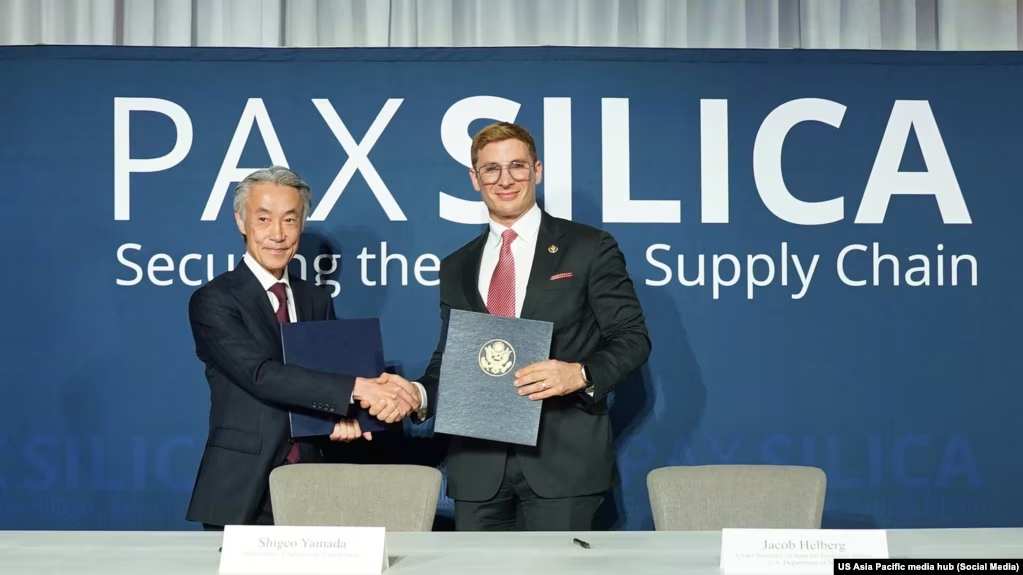2018-09-19

Destroyed wooden coffins sit under a bridge in Anfu county, southeast China’s Jiangxi province, Aug. 5, 2018.
Photo courtesy of residents of Anfu county
Authorities in the southern Chinese province of Guangdong are targeting a media editor after he retweeted video footage of officials in the eastern province of Jiangxi snatching a coffin in a bid to implement bans on traditional burials in favor of cremation.
Many elderly people in rural China purchase their coffins in preparation for their own funerals in accordance with traditional preferences for burial in or near one’s ancestral home, and officials in some parts of the country have been forcibly removing them from people’s homes in a bid to encourage them to use cremation instead, sparking online outrage in recent weeks.
Trade publication editor Liu Zhixiang, who is currently hiding from police in the provincial capital Guangzhou, was contacted by local police and officials after posting the video to Sina Weibo on Sept. 14.
Liu, who works for the Guangdong Enterprise Brand Construction Promotion Association, said that while the video footage was deleted by government censors or filters within a minute of his reposting it, his text comment was published.
“I got home at around 8 p.m., and my father called me to say that the village committee had asked for my phone number, and that he gave it to them,” he said.
“No sooner had I gotten off the phone, when I got a call from the head of the internet police in [Jiangxi’s] Jishui county, saying that my Sina Weibo tweet had been picked up by [local government] surveillance, and was causing them no end of trouble,” Liu said.
“They asked me to delete it as soon as possible, so that I would be able to ‘carry on living my life in peace’,” he said.
Liu complied, and thought that would be the end of the matter, but is now being pursued by Jiangxi police in Guangzhou.
“After I deleted it, I got a call from a police officer asking where the footage was taken,” Liu said. “I replied that I had seen it on a group chat. A few days went by, and I thought that that was that.”
“But then the internet police called me on [Tuesday] evening … saying they were in Guangzhou, and that they wanted to meet with me. I was very anxious,” he said.
‘Coffin-snatching’ phenomenon
“Coffin-snatching” by local officials is a growing phenomenon in rural China, where families prefer traditional burials in the soil of their hometowns, and where officials are under increasing pressure by the ruling Chinese Communist Party to end such burials in favor of cremation.
A resident of Jiangxi’s Xiangyang said that while many people are in favor of funeral reform, they are uncomfortable with being coerced into it by the government.
“It’s too brutal, because these elderly people have already bought their coffin and have it in their homes,” she said, referring to a traditional custom to start saving for a coffin and to take satisfaction in buying it long before it is needed.
“I think they are using mandatory measures, which makes people feel as if they’re not handing them over voluntarily,” she said.
Online reports have surfaced from Jiangxi detailing clashes between local people and officials trying to remove or destroy people’s coffins, but videos of such incidents are quickly deleted from China’s tightly controlled internet.
A Jiangxi-based rights activist surnamed Wang said the practice of preparing for one’s funeral well in advance is largely a rural one.
“We don’t have these problems in the cities — only in the countryside,” Wang said. “I have seen reports online of bodies [in coffins] being snatched even.”
“This is a question of people’s traditions and customs, and adopting a one-size-fits-all approach is completely wrong,” he said.
Jiangxi officials say they will compensate anyone voluntarily giving up their coffins with up to 2,000 yuan (U.S. $291), but the better quality coffins can cost as much as 5,000 yuan (U.S. $728), sources told RFA.
Coercive action
An Aug. 4 editorial on the relatively liberal Caixin Global business news site hit out at the practice, reporting that “enforcement teams have entered village homes, seized empty coffins, and smashed them with excavators.”
“Many elderly people, who by local custom have saved up for many years to purchase their own coffins, have been reduced to tears by this violent form of law enforcement,” the article said.
Government policy requires local governments to implement funeral reform, but in theory forbids any coercive action to achieve targets, it said.
“The lack of mass acceptance exposes reform to the risk of collapse,” the editorial warned.
“Chinese society has long been ordered around a series of ethical rules, which are closely related to the practice of ancestor worship,” it said. “Even today, ancestor worship still has active relevance, and funerals serve as important tools for maintaining social order and helping people find psychological stability.”









